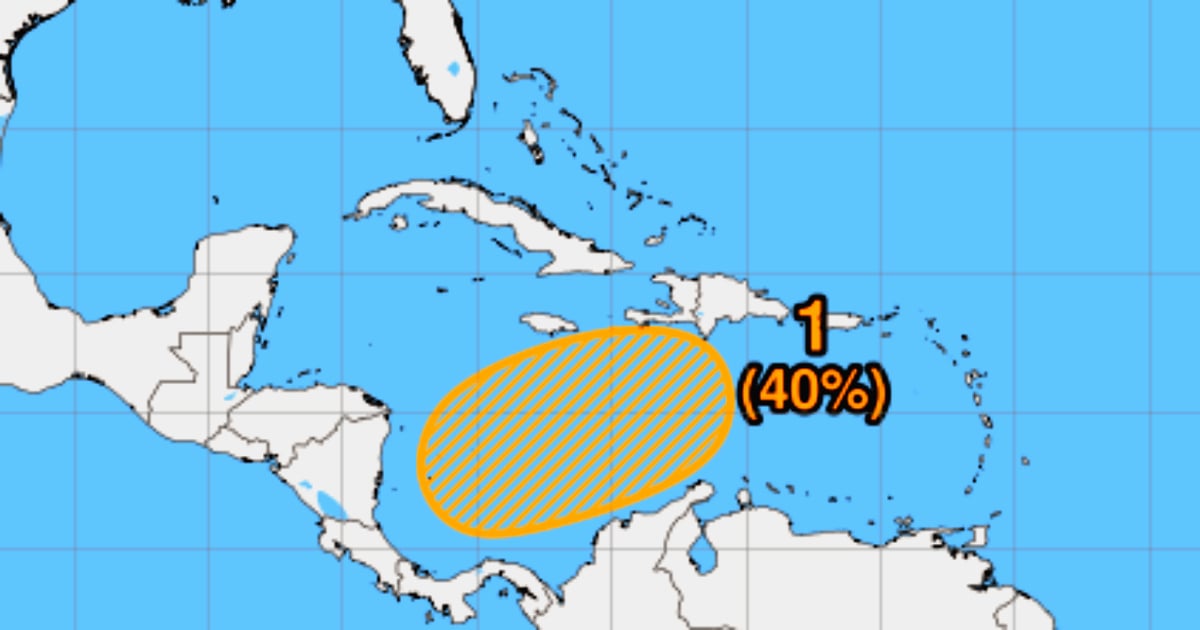
A warning from the National Hurricane Center (NHC) alerted to the possibility of a tropical depression forming in the Caribbean, which would be located in an area near the eastern coast of Cuba.
Although the low-pressure system is currently evolving and poses no threat to Cuba, alarm bells are ringing on the island due to the possibility that it may organize and move toward a region that has already been severely impacted by the recent passage of Hurricane Oscar.
"It is likely that a broad low pressure system will develop over the Caribbean in a few days, possibly forming a tropical depression by the end of this week or this weekend. This does not pose a threat to the continental U.S. within the next seven days. Those with interests in the Caribbean should monitor its progress," the NHC warned in a tweet.
For its part, the National Oceanic and Atmospheric Administration (NOAA) warned that the detected system is beginning to move north or northeast over the southwest and central Caribbean Sea.
At the time of writing this note, the system is located in the southern Caribbean, between Venezuela, Colombia, Panama, Jamaica, Haiti, and the Dominican Republic. If it continues its expected movement northward, the system could pose a threat to the eastern region of Cuba.
In June, meteorologists from Colorado State University (CSU), pioneers in seasonal hurricane forecasts, presented their outlook for the 2024 Atlantic hurricane season and indicated that the current season would be "extremely active," with 23 named storms, 11 hurricanes, and five hurricanes of category 3 or higher.
These figures far exceed the average of the last 30 years, which is 14 named storms, seven hurricanes, and three of these hurricanes reaching category 3 or higher in the Atlantic, according to the 44-page report.
Just a week ago, Cuba was hit by Hurricane Oscar, which resulted in a preliminary toll of seven fatalities in the Guantánamo province and significant material losses. Additionally, Helene affected the state of Florida in the United States.
What do you think?
COMMENTFiled under: